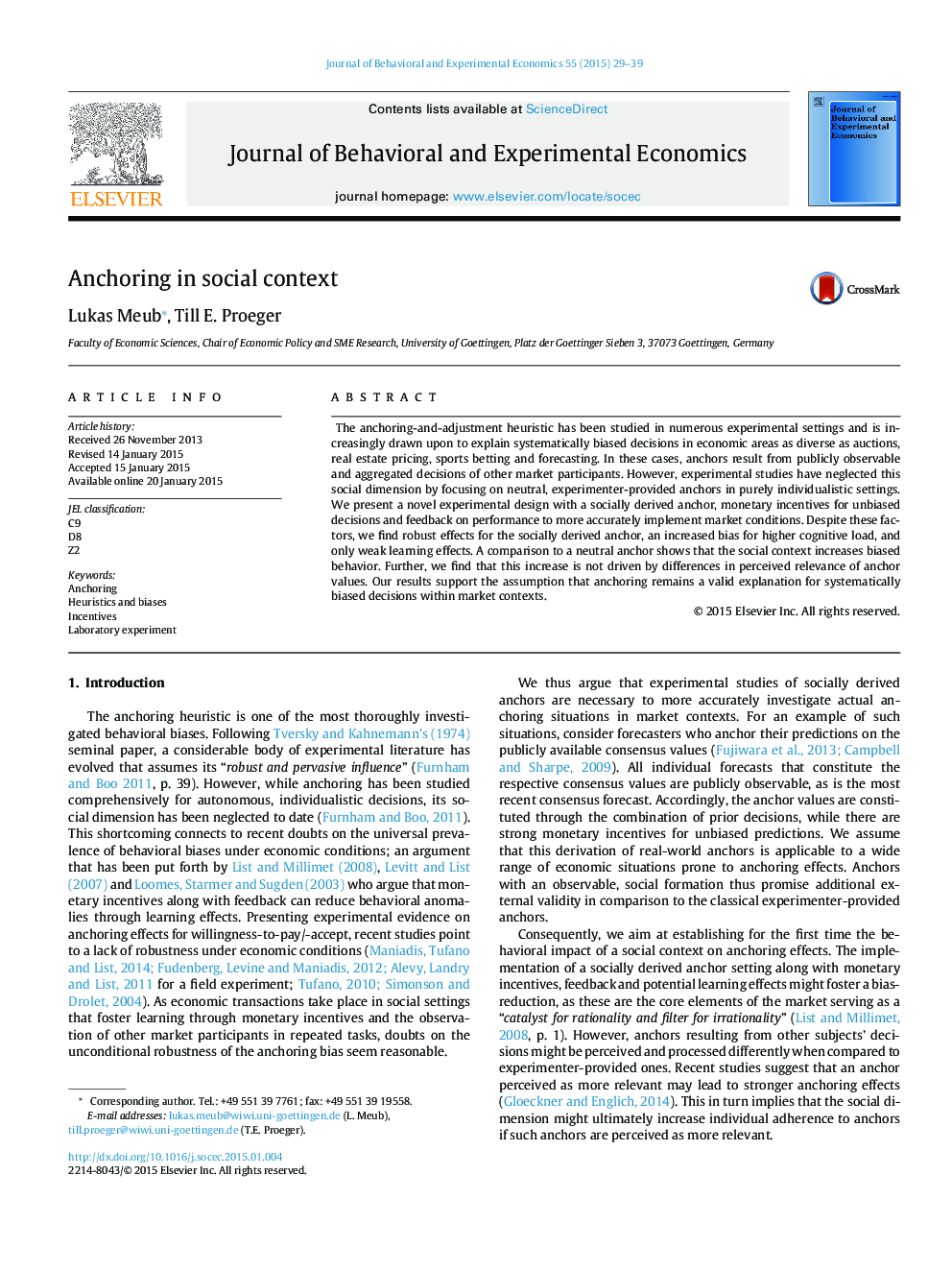| Article ID | Journal | Published Year | Pages | File Type |
|---|---|---|---|---|
| 881861 | Journal of Behavioral and Experimental Economics | 2015 | 11 Pages |
•We present a novel anchoring experiment with a socially derived anchor.•We find anchoring effects despite monetary incentives and feedback on performance.•Learning effects are negligible with respect to anchoring in our repeated task.•Compared to a neutral anchor, the social anchor substantially increases the bias.•Subjects’ perceived relevance of anchor values cannot explain this effect.
The anchoring-and-adjustment heuristic has been studied in numerous experimental settings and is increasingly drawn upon to explain systematically biased decisions in economic areas as diverse as auctions, real estate pricing, sports betting and forecasting. In these cases, anchors result from publicly observable and aggregated decisions of other market participants. However, experimental studies have neglected this social dimension by focusing on neutral, experimenter-provided anchors in purely individualistic settings. We present a novel experimental design with a socially derived anchor, monetary incentives for unbiased decisions and feedback on performance to more accurately implement market conditions. Despite these factors, we find robust effects for the socially derived anchor, an increased bias for higher cognitive load, and only weak learning effects. A comparison to a neutral anchor shows that the social context increases biased behavior. Further, we find that this increase is not driven by differences in perceived relevance of anchor values. Our results support the assumption that anchoring remains a valid explanation for systematically biased decisions within market contexts.
